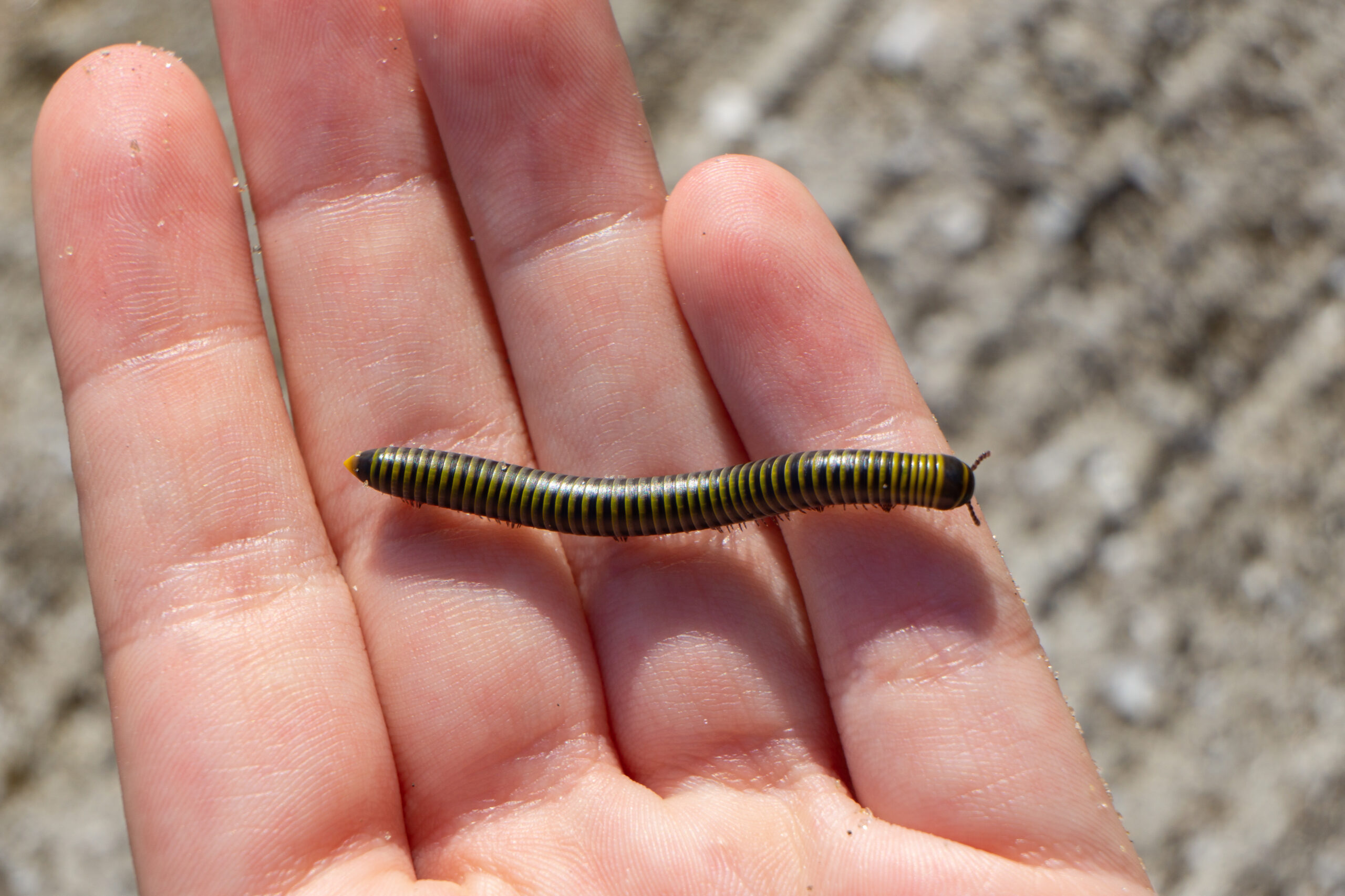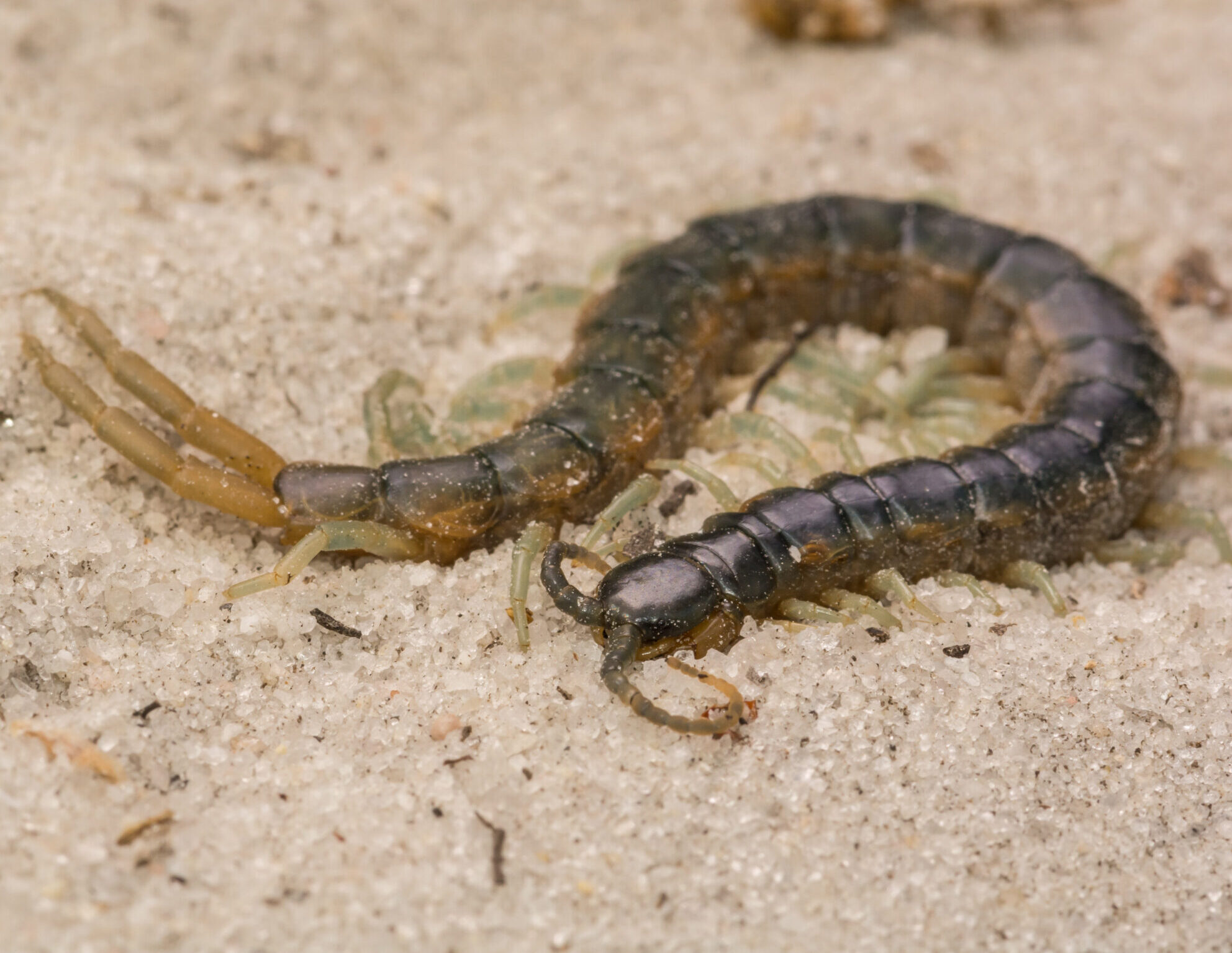
Centipedes and Millipedes
Centipedes and millipedes prefer humid climates which makes Florida the perfect area for them. These insects are generally considered nuisance pests and usually do not cause significant infestations in the homes they are found in. They are not known to damage personal belongings, homes, or food.
Centipedes
Centipedes typically have legs ranging from 10 to 100 depending on the species. They are usually brown and can move very fast across the surfaces they are on present on. They can be distinguished from millipedes by the large pair of antennae on the front of their heads. These insects have venom glands used to immobilize their prey and are active at night. (Insect pictured below in sand)
Millipedes
Millipedes are wormlike insects with a large amount of body segments with each bearing two pairs of legs. These pests will coil up tightly and secrete a foul-smelling liquid when disturbed. These insects feed on decaying vegetation and often found in areas where there is abundant moisture. (Insect pictures above in the hand)
